Page added on March 25, 2016
The Single Biggest Thing You Can Do For The Environment
I’ve always considered myself an environmentalist, albeit a somewhat lazy one. I try to carry cloth bags with me instead of using plastic, and to shop at the farmers market (which, sadly, I recently found out is not always actually better for the environment). But while I’ve been trying to recycle my clothing and use metal water bottles for a while now, there was one change I could have made a long time ago that would have made more of difference for my carbon footprint than anything else: eliminating or reducing meat and dairy from my diet.
Simply put, raising animals for food requires massive amounts of land, food, energy, and water, and is a leading cause of climate change. Whether or not you do it because of the animal suffering, if you care about global warming and our environment, one of the most impactful and simplest things you can do is to eliminate or reduce your meat and dairy consumption. Even the UN has said it: “a substantial reduction of [environmental] impacts would only be possible with a substantial worldwide diet change away from animal products.”
Riding your bike and taking shorter showers is also wonderful, but none of those actions has close to the impact on the environment that your food does. Cutting out meat and dairy (or even just starting with meat, or eating vegan one day a week) is the single largest thing you can do to immediately fight global warming. Here’s why.
1. Eating Vegan Or Vegetarian Even Just One Day A Week Has A Huge Impact
Here are the facts: If you eat vegan even for just one day a week, you have had a greater positive environmental impact than if you were to eat only locally-grown food seven days a week. According to Environmental Defense, if every American skipped one meal of chicken per week and substituted vegetarian foods instead, the carbon dioxide savings would be equivalent to taking more than half a million cars off of our roads. If everyone ate vegetarian one day a week, we’d also save 100 billion gallons of water, (aka enough to supply all the homes in New England for almost four months); 1.5 billion pounds of crops otherwise fed to livestock, (enough to feed the state of New Mexico for more than a year); and 70 million gallons of gas (enough to fuel all the cars of Canada and Mexico combined and then some).
And that is just the effect of one day.
2. Animal Agriculture Is Responsible For 91% Of Rainforest Destruction
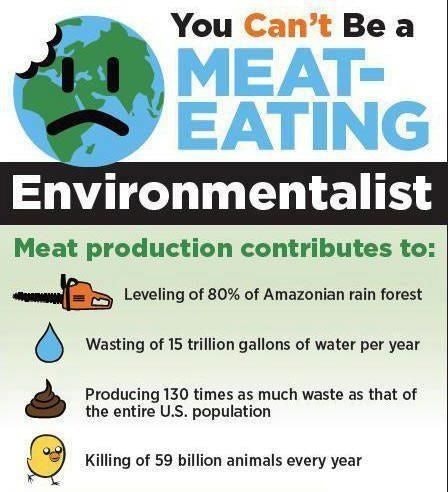
First, try to wrap your head around this fact: Livestock or livestock feed now occupies around 30 percent of the earth’s entire land surface. Now, consider this: one to two acres of rainforest are being cleared every second. Up to 137 species of animals, plant, and insect species are lost every day due to this destruction.
Livestock production is a key factor in deforestation, especially in Latin America, where cattle ranching now occupies nearly 75 percent of the deforested areas of the Amazon rainforest, and more than 90 percent of the Amazon that’s been cleared since 1970. About 260 million acres of U.S. forests have been cleared to create cropland to produce feed for animals raised for food.
It takes almost 20 times less land to feed someone on a vegan diet than it does to feed a meat-eater, since the crops are used directly.
3. Meat & Dairy = Greenhouse Gases
If you eat meat, you are actively contributing to climate change. The billions of chickens, turkeys, pigs, and cows who are crammed onto factory farms produce enormous amounts of greenhouse gases. In fact, the livestock sector is one of the largest sources of carbon dioxide pollution, and the single largest source of both methane and nitrous oxide, which are many more times potent than carbon dioxide.
Depending on which measurements you go by, anywhere between 14 percent and 51 percent of global greenhouse-gas emissions are caused by animal agriculture. It’s not just that all the animals that are bred solely for our consumption give off large amounts of greenhouse-gases — it’s the entire massive industry around them. Every day, animals are packed onto huge semi-trucks, shipped around the world, and processed in large factory-style slaughterhouses, where it then takes an enormous amount of energy to kill them and ship their parts around the world.
What’s worse is that it’s only increasing: emissions from agriculture are projected to increase 80 percent by 2050, as meat consumption is rising and our global population is exploding. (So, not having kids or adopting would also help, but I think it’s unrealistic to ask you to do that.)
4. Making One Hamburger Uses As Much Water As Showering For 2 Months
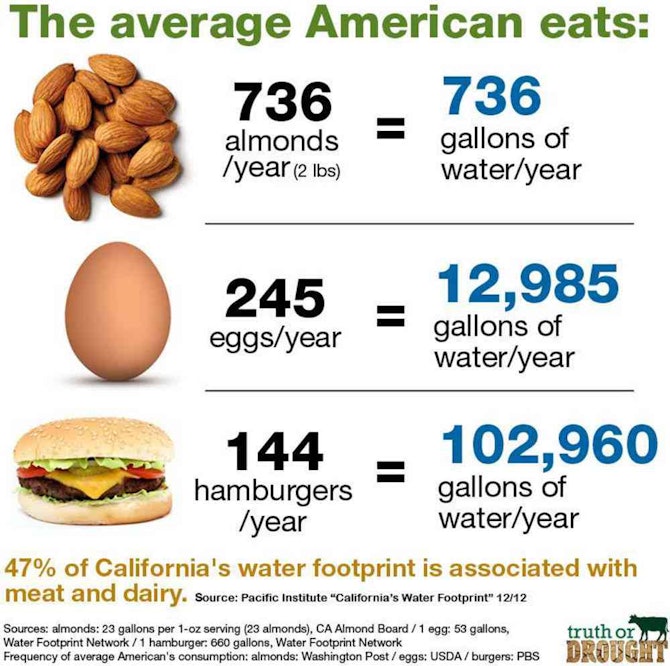
Almonds have gotten a bad wrap in California for the amount of water consumed in their production. But as you can see above, for all the press almonds have recently received, the water it takes to grow them pales in comparison to the amount it takes to produce eggs and meat. In fact, the production of just one hamburger takes as much water as you would use in two months of showering. It takes an estimated 660 gallons of water to produce a hamburger, while producing 1/4 pound of tofu only requires around 60 gallons of water.
The livestock business is among the most damaging sectors to the earth’s increasingly scarce water resources. It takes an enormous amount of water to grow crops for animals to eat, clean (still filthy) factory farms, and give animals water to drink. A single cow used for milk can drink up to 50 gallons of water per day — or twice that amount in hot weather.
You might know all this already from the 2014 documentary Cowspiracy: The Sustainability Secret (which is on Netflix). The film points out that a person who eats a vegan diet saves 1,100 gallons of water every day, compared to a typical meat-eater’s diet. By comparison, even if you follow all the government’s recommendations for conserving water, you’ll still only save 47 gallons a day. (That the reason the government’s recommendations for saving water don’t include a vegan diet probably have a little something to do with our country’s powerful animal agriculture lobbies.)
5. Animal Waste Is A Leading Cause Of Environmental Pollution
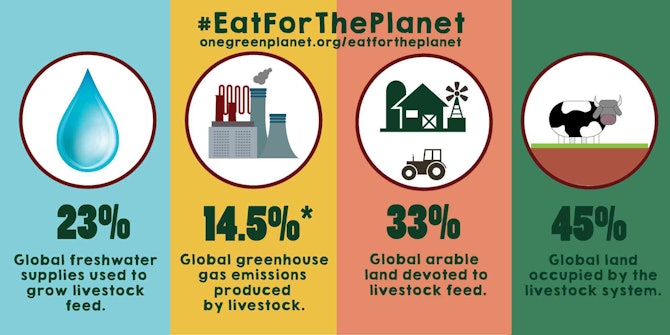
Animals raised for food in the U.S. make more sh*t than our entire human population. A single dairy cow produces approximately 120 pounds of wet manure per day, an amount equal to about 20-40 people. According to the U.S. Environmental Protection Agency (EPA), animals on U.S. factory farms produce about 500 million tons of manure each year.
Here’s why this is bad for the environment: with no animal sewage processing plants, waste is most often stored in “lagoons” (which are so large they can be seen in aerial views of factory farms), or they get sprayed over fields — and no, that’s not just fertilizer. Factory farms spray the waste to dodge water pollution limits, creating mists that are carried away by the wind, and the poor people who live near the farms are forced to inhale the subsequent toxins and pathogens.
Furthermore, when it’s improperly stored and used, animal waste can destroy ecosystems and contaminate underground drinking water supplies, by allowing manure to escape into the surrounding environment. When contaminants from animal waste seep into underground sources of drinking water, the amount of nitrate in the ground water supply can reach unhealthy levels. Babies are particularly susceptible to high nitrate levels and may develop something called “Blue Baby Syndrome” (methemoglobinemia), an often fatal blood disorder, as a result.
6. Eating Animals Uses A Ton Of Fossil Fuels
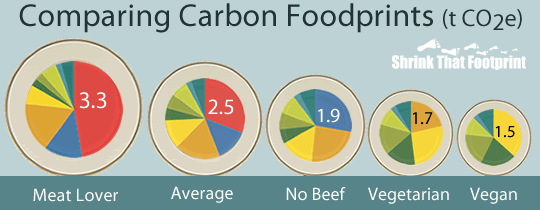
A lot of energy is used to turn a piece of an animal into a steak on your plate. First, there’s the energy it takes to grow the grain to feed the cattle, which requires a heavy input of petroleum-based agricultural chemicals. Then, there’s the fuel required to transport the cattle to slaughter, and then to market. Today, much of the world’s meat is hauled thousands of miles. Oh, and after being refrigerated, it has to be cooked. It all adds up to a lot of energy.
According to the World Watch Institute, “it takes, on average, 28 calories of fossil fuel energy to produce one calorie of meat protein for human consumption, [whereas] it takes only 3.3 calories of fossil-fuel energy to produce one calorie of protein from grain for human consumption. It takes the equivalent of a gallon of gasoline to produce a pound of grain-fed beef in the United States. Some of the energy was used in the feedlot, or in transportation and cold storage, but most of it went to fertilizing the feed grain used to grow the modern steer or cow…. To provide the yearly average beef consumption of an American family of four requires over 260 gallons of fossil fuel.”
7. Animal Agriculture Is Using Grain That Could Be Going To Hungry People
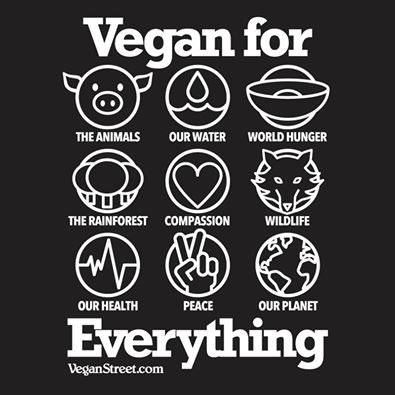
Worldwide, around 50 percent of grain is fed to livestock — food that could instead be used to feed hungry people. The world’s cattle alone consume a quantity of food equal to the caloric needs of 8.7 billion people; more than the entire human population on Earth. According to the U.N. Convention to Combat Desertification, it takes around 10 pounds of grain to produce just one pound of meat, and according to the U.S. Department of Commerce, Census of Agriculture, 56 million acres of U.S. land are producing hay for livestock and only four million acres are producing vegetables for human consumption.
“If all the grain currently fed to livestock in the United States were consumed directly by people, the number of people who could be fed would be nearly 800 million,” David Pimentel, professor of ecology in Cornell University reports. It’s estimated that 795 million people in the world don’t have enough to eat, so that would cover them, and then some. You don’t even need to care about animals to see how that’s messed up.
The Bottom Line
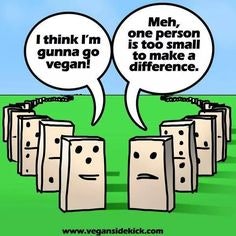
Cutting meat and/or dairy out of your diet — even starting with just one day a week — has a much bigger impact on our environment than any other lifestyle change you can make. It’s simple, it’s good for your health, it takes a stand against animal suffering, and it may even make you feel like a better person.
Really, there’s nothing to lose — except a hospitable planet.
33 Comments on "The Single Biggest Thing You Can Do For The Environment"

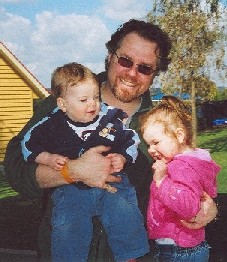
Go Speed Racer on Fri, 25th Mar 2016 7:58 am
I am sure the overpopulating uneducated hordes of poor people, will carefully study the above essay, and follow every word.
What about your printer ink? Petroleum based printer inks contain carcinogenic cyclic aromatics which despoil the environment. MY printer ink is based on 100% organic soy oils and no dolphins or child labor was harmed in the making of my printer ink.
And the point is, probably a redneck burning tires and mattresses in his backyard is actually better for the environment than all this yackety yack about being a vegetarian. And you could probly do more good by recycling your trash. Most people don’t.
Davy on Fri, 25th Mar 2016 8:07 am
“Cutting meat and/or dairy out of your diet” This is vegan BS. Sure industrial meat and dairy production is insane but not all meat and dairy should be eliminated. There are places where you can only graze animals. Cereal crops, fruits, and vegetables cannot be grown at many locations. The whole basis for permaculture without fossil fuels must include animals in the process. Human and animal power will be essential. Animals in this process must also be eaten to make it work.
This person is another greenwasher that does not understand collapsing modern culture. Besides any change to our current system is out of the question to a degree that this persons recommendations would make a difference. She is talking around the edges to the greenwashers. We have 7BIL people barely fed now by a global industrial agricultural machine. You just can’t deviate much form it without mass famine. These things don’t change like that.
If you want to help the environment stop driving your car. Start trying to grow your own food. Quit consumerism except for the very “must haves”. Go renewable if you can and use as little power as possible. Use air-conditioning only when you must. Burn with biomass to heat if you can. Don’t reproduce period. We are going to have accidents that will allow people to be born. If you have a choice do not procreate. That is what is green not bitching about our industrial agricultural system being heavy on meat and dairy. Yes it is but it is also heavy on the monoculture global distribution for a vegan palate.
steveo on Fri, 25th Mar 2016 8:26 am
Actually, the single biggest thing you can do for the environment is to die.
dohboi on Fri, 25th Mar 2016 8:26 am
GSR, your post indicates that you are one of your “uneducated hordes.”
The poorest mostly can’t afford much meat in their diet, and per capita consume a tiny fraction of what the average American consumes.
geopressure on Fri, 25th Mar 2016 8:45 am
Steveo… I’m getting that put on a t-shirt!!!
—
I was totally planning to start a death cult this week, but got behind & now it a Holiday…
—
Holy shit, it’s the day Jesus Died… Maybe I’m supposed to start a Death Cult this week after all… hmmm
Dubya on Fri, 25th Mar 2016 9:09 am
Often while reading articles like this I imagine the world 500 years ago. Is it the cattle grazing on poor farmland the problem, killed by the butcher down the street? Or is it the GMO grain to CAFO to 10,000 animals per day industrial slaughterhouses to transcontinental reefer semis J-I-T to MalWart system that is the problem?
We will never feed the world on organic agriculture. Except we did for 10,000 years and in the past 75 years have innovated the destruction of the natural world – you know , the one we need to survive.
Kenz300 on Fri, 25th Mar 2016 9:46 am
The worlds biggest environmental problem is OVERPOPULATION………every problem is made worse each year as the worlds population continues to grow.
Too many people……….create too much pollution and demand too many resources….
China made great progress in moving its people out of poverty…….one reason was slowing population growth…..
If you can not provide for yourself you can not provide for a child.
CLIMATE CHANGE, declining fish stocks, droughts, floods, air water and land pollution, poverty, water and food shortages all stem from the worlds worst environmental problem……. OVER POPULATION.
Yet the world adds 80 million more mouths to feed, clothe, house and provide energy and water for every year… this is unsustainable… and is a big part of the Climate Change problem
Birth Control Permanent Methods: Learn About Effectiveness
http://www.emedicinehealth.com/birth_control_permanent_methods/article_em.htm
makati1 on Fri, 25th Mar 2016 9:57 am
There are 1,000,000,000+ cattle in the world today. They mass more than the 7+ billion humans.
Americans eat an average of 8 ounces of grains per day.
https://search.yahoo.com/search?fr=mcafee&type=C111US0D20151022&p=How+much+grain+does+an+American+eat+per+day%3F+
A beef steer eats an average of 160 (10 lb) ounces of grains per day or 20 times that eaten by the average American.
https://www.highlandcattleusa.org/content/Grain%20Finished%20Beef.pdf
If we eliminated beef from our diets, the grains would support a few billion more of us hairy apes. And we would be a lot healthier and richer.
BTW:”… rice intake is associated with a reduction in cardiovascular disease while wheat flour intake is associated with an increase in cardiovascular disease.” Good to know if you are getting older. LOL
http://www.marksdailyapple.com/the-asian-paradox-how-can-asians-eat-so-much-rice-and-not-gain-weight/#axzz43vUpbyhk
ghung on Fri, 25th Mar 2016 10:15 am
Environmental issues aside, vegetarianism may be an industrial age/industrial agriculture choice these days, but when things begin to crash hard, these folks will eat whatever they can get their grubby hands on, especially high-protein flesh. While people in food-constrained situations may subsist mainly on a vegetable-based diet, most wouldn’t survive without the occasional fish, pig, chicken, or rat.
Too many humans with high protein requirements.
Davy on Fri, 25th Mar 2016 10:26 am
The white rice which a significant amount of Asians eat is not healthy. Like any other grain the healthy parts are removed in the refining process.
twocats on Fri, 25th Mar 2016 10:49 am
Is it the cattle grazing on poor farmland the problem, killed by the butcher down the street? [dubya]
the overall degradation of the planet has been a process. there used to be deciduous trees on Greece and Ireland. the trees of ireland took thousands and thousands of years to clear out.
I agree with the article that meat is an issue.
It’s also how fossil fuels has allowed all degradation processes to become delocalized and accelerated.
And although Kenz is a condescending dick for continually posting birth control stuff [to people who are not even on this blog], scale of human population is an issue.
but let’s remind everyone again – it’s the wealthy that have the largest footprint, on a scale from the uber-wealthy down through OECD.
one interesting thing that SOME of my asian friends have mentioned – it’s become “low class” to eat rice. If one can afford just meat and vegetables, that’s considered of a higher social status and is promoted. If one is looking to our Asian overlords to fix this sinking ship, look elsewhere.
twocats on Fri, 25th Mar 2016 10:50 am
*and Ireland was forested nearly coast to coast.
Plantagenet on Fri, 25th Mar 2016 11:04 am
Veganism is a plot to let overpopulation get even worse.
Yes, the world could support more humans if we all lived on grass, and probably even more billions if we all switched to a diet of wood pulp, and to absolutely maximize the human population go for soylent green.
Maximizing the number of humans on the planet isn’t a desirable goal in the first place.
Cheers!
WildRose on Fri, 25th Mar 2016 12:18 pm
A good article with strong arguments for reducing meat and dairy consumption. The ball really is in our court. We can take steps to reduce environmental degradation or not, and the reward/consequences lie squarely on our shoulders.
penury on Fri, 25th Mar 2016 12:19 pm
And the answer is: Nothing. There is nothing you can do as an individual. There is nothing you can do as a society. There is nothing a single nation can do. In other words ” Humans are hosed. Humans are going away. Humans do not have the ability to follow any discipline which would stop or even slow the destruction of the eco-system, That type of hive mentality is foreign to humans.
farmboy on Fri, 25th Mar 2016 12:22 pm
Just to keep from degrading; grasslands require herds of grazers, coming though an area every once in a while grazing, urinating,defecating and stomping down the grass, the way the massive herds of the worlds grasslands did till man removed them. This does a way better job of rejenerating the grass plants then a fire.
A number of ranches and farms ‘including mine’ across the world are showing that this can also be accomplished by domestic livestock, including cattle.
Cattle are not the cause of climate change, they are vital to the only real solution.
The problem is with how humans have managed them for millenia, set stock grazing. Grass plants can not thrive if a cow grazes it off every week or two. Grass plants need to be able to photosynthesize so that it can feed the soil biology with the sugars, in exchange for water and all the other nutrients that the soil fungi and bacteria give back in exchange.
The number one thing you can do for the environment is to stop procreating, the second is to stop buying any chicken pork eggs fish beef or dairy from any cafo and support holistic planned graziers. I used the term Holistic Planned Graziers since some grassfed labeled beef is fed forages and grain byproducts in a feedlot.
Why am I so sure? youtube.com/watch?v=vpTHi7O66pI
soilcarboncoalition.org
http://www.grassfedexchange.com/
Apneaman on Fri, 25th Mar 2016 12:40 pm
Tyrosine precursor to dopamine and meat is chock full of juicy tyrosine. Therefore meat is dopamine on a bun. Apes are ruled by a never ending desire for the next dopamine squirt. Hence the obesity and food addiction and every other destructive behaviour. Food chemists and the big food corporations they work for are nothing more than drug dealers. Entire science careers are spent on refining the “bliss point”. Apes are simple creatures easily manipulated and anyone who thinks they are in control is naive or unlearned. The entire global civilization is addicted to growth and we about to OD…..fatally.
How the food industry hooked us on unhealthy products
“Moss pointed out that “kids are hardwired for sugar,” and eating it stimulates the pleasure centre of the brain, encouraging more consumption. Food companies argue they have had no intention of contributing to obesity and other health problems. “But every ounce of their formulation, marketing, advertising energy, goes into making their products irresistible,” he said.”
http://www.cbc.ca/books/2013/03/how-the-food-industry-hooked-us-on-unhealthy-products.html
antaris on Fri, 25th Mar 2016 12:44 pm
Plant, we were looking at parmesan cheese in the fridge the other night and one of the brands contained cellulose. My son disposed of it as he wasn’t keen on eating wood with his spaghetti.
Plantagenet on Fri, 25th Mar 2016 1:11 pm
Good for you and your son Antaris — A smart young man.
Cheers!
Pennsyguy on Fri, 25th Mar 2016 1:11 pm
I don’t eat meat because:
1. It’s healthier for me.
2. It decreases the amount of suffering in the world.
Will this save humanity? No.
Do you dislike my morality? Tough.
JuanP on Fri, 25th Mar 2016 1:18 pm
I produced no biological offspring and had a Vasectomy instead. I intend to eat steaks, BBQs, and burgers till the day I die. I don’t mind at all the fools that think they are doing something productive for the biosphere by not eating beef since supply and demand mean that makes my steak cheaper, which is good for me.
So, no beef for you, guys! And, while we’re at it, you should also avoid prosciutto, parmesan cheese, and everything else I like!
Davy on Fri, 25th Mar 2016 1:36 pm
Ape hole, is that why you are addicted to Ice cream you fat ass?
Juan, did the nurse laugh when you pulled you pants down to get your nuts cut?
Apneaman on Fri, 25th Mar 2016 1:51 pm
That’s right Davy, I need it. Same as you need anti depressants, mythical nationalism and the child fucking catholic church. We all need something to believe in and I believe I will have another bowl of Moose Tracks.
paulo1 on Fri, 25th Mar 2016 1:51 pm
Last night we had terriaki coho salmon with rice, green beans and a fresh salad. (Lots of homemade wine, mmmmmm). Everything but the rice we caught/grew. Layers eat hardly any grains and/or pellets, they mainly forage. Our 30 broiler chicks will be here on April 18th. If we get to the point where I can’t have bacon and eggs once or twice a week, then screw it. Life is short.
My ex wife turned vegetarian some years ago. It is/was a major pain in the ass for the entire extended family. Spaghetti? Guess what, two batches have to be made. Barbecue? Well we have to go buy moneys mushroom burgers that look and almost taste like beef, and only cost twice as much and falls apart when you flip them. Christmas dinner? “I’ll just have the potatos, (hold the gravy”.)
What it did help was the environment. She turned into such an attention seeking shill for vegetarianism people stopped coming over for meals and for visits, it was that fun. (Not). I suppose it really lowered greenhouse gas emmisions when friends stopped driving over.
Tomorrow, we have to go to Courtenay and I plan to sit in the sun by the river and eat a deluxe cheeseburger from George’s take out grill. Life is good.
antaris on Fri, 25th Mar 2016 2:16 pm
Nothing like Non Scalpel Vasectomies.
They use scissors instead.
bug on Fri, 25th Mar 2016 4:02 pm
Steveo hits it out of the ballpark
Boat on Fri, 25th Mar 2016 4:34 pm
apeman,
If the world together donated a few billion for a group of entertaining drugs with fewer side effects and sold them for cost, the world better off.
Drugs have never been a problem, only the side effects.
sidzepp on Fri, 25th Mar 2016 5:43 pm
The 7+ billion inhabitants of this planet face a myriad of challenges to our continued existence. When a person such as the above author offers a partial abatement of the problem it is viciously attacked and we continue to march blindly to oblivion. As long as the only economic model that exists is continued growth in GDP based on fossil fuels we will continue to laugh at people who offer solutions. Until the masses arise and topple the existing status quo will their be positive change. Right now we are just putting bandages on amputations and too few are doing too little. The status quo with their MSM PR firm continue to place fear in the minds of their minions with terrorism, undocumented workers, and playing various parts of the masses against each other.
The article above suggests that a diet that incorporates more vegan and less meat will contribute to sustainability.
Many of the fast food companies contract with ranchers in Brazil for their beef. Rain forest cleared is initially used for cattle ranching. Unfortunately the former forest is not suitable for long term cattle grazing and more forest needs to be cleared in a few years to continue profitable operations. All so we can keep our dollar burgers on the menu boards.
makati1 on Fri, 25th Mar 2016 7:18 pm
Since the meat eaters here will not change their diet, they will be among the first to go when the SHTF because of heart disease that will have no cure or meds or modern techie fixes like a new valve or pacemaker.
Those who make a living off of their beef farm, justify it by ignoring facts. Just like economists or the petro gang. They are part of the problem, not the answer. So be it.
I have cut my red meat intake by at least 80% since I moved to the Philippines. Yes, occasionally I have a nice 8 oz T-bone, pan fried. It costs all of 95 Pesos or about $2. The McDonalds across the street has seen my purchase of a Big Mac maybe once or twice a year on special occasions. I save money and get healthier in return for my ‘sacrifice’. Sounds like a good trade-off to me.
Outcast_Searcher on Fri, 25th Mar 2016 9:38 pm
And as part of my new, healthier diet for my blood pressure, I have been eating pecans and cashews as high nutrient, high fiber, low sodium foods.
Yikes. Almonds. So I’m not not allowed to eat nuts to get proteins?
How about just not having kids and living a generally low carbon footprint lifestyle, including only eating a little meat?
But no — moderation is never considered a reasonable alternative in the eyes of the person convinced they “have the answer” for everyone.
Boat on Fri, 25th Mar 2016 10:12 pm
Outcast_Searcher,
I gave up the salt shaker 5 years ago. Plan my unhealthy meals around 5 mile walks an hr later. Feels weird pigging out early when I need that big steak and taters.
GregT on Sat, 26th Mar 2016 12:11 am
And finally, what just may be the last non-sensical Boat quote of the day;
“Feels weird pigging out early when I need that big steak and taters.”
It really doesn’t get any more fucking ridiculous, than the above non-sense.
J-Gav on Sat, 26th Mar 2016 6:35 pm
Ghung – right on target.